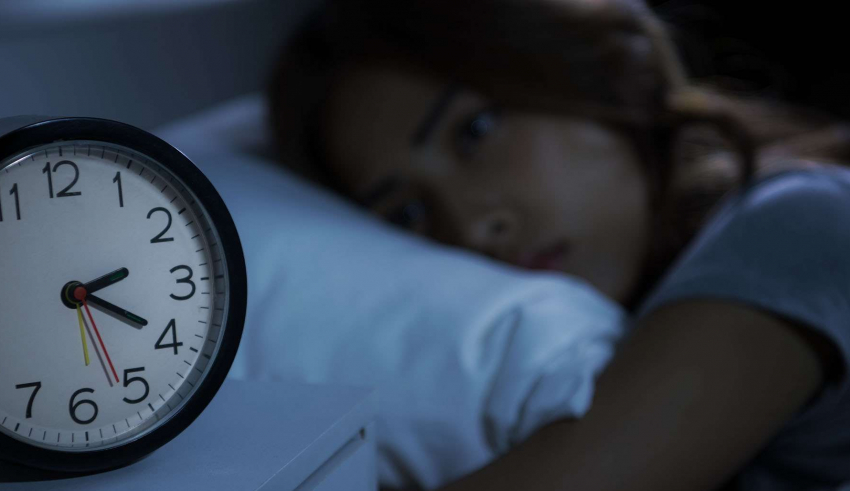
After Ramadan, you may suffer from sleep disturbances and insomnia for many reasons. One of these reasons results from changing sleeping habits in the fasting period, during which people stay up all night and sleep during the day. Thus, this blessed month imposes a special system that is completely different from the daily routine, so returning to the natural habit can be somewhat difficult. From here, we will introduce you to the ways to treat sleep disorders and insomnia after Ramadan so you can have more restful nights.
1- Set a time to go to bed
Every day after the end of Ramadan, set a specific time to go to bed. Even if you can’t sleep, lie down and try not to think about anything. By going to bed and getting up at about the same time each day, you will program your body to sleep better.
2- Avoid naps
Do not take naps even if you feel tired, as napping during the day can make it more difficult to sleep at night. So, save the nap for the evening, at bedtime, and if you feel tired during the day, do some exercise to ward off the feeling of sleepiness.
3- Listen to Qur’an recitation
Listen to your favourite chapters of the Quran before bed. You can also create a playlist of soothing melodies and rhythmic sounds of ocean waves to help you sleep.
4- Stay away from the phone and computer before bedtime
Exposure to light from electronic devices shortly before bedtime can disrupt your sleep schedule. Avoid exposure to phone, computer, and even television light at least 10 minutes before bedtime, and turn off the lights for a peaceful night’s sleep.
5- Avoid caffeine before bedtime
You may be used to consuming caffeine after breakfast during Ramadan, as it provides energy to your body, but after the end of this holy month, reduce your caffeine intake, especially in the evening. Caffeine takes a very long time to be excreted from your body, and its effects can last up to 6 hours after consumption. Enjoy a warm, milky drink or herbal tea instead.
6- Avoid sports before bedtime
Yes, exercise is very important, especially during Ramadan as you may have worked out after breakfast to burn fat and provide energy to your body. But after Ramadan, try to work out in the morning and avoid doing vigorous exercise too close to bedtime as it may keep you awake.
7- Get into the light immediately after waking up
It is very important to expose yourself to bright light upon waking for at least an hour. This does not necessarily require staying outside the house under the sun, but exposure to light from inside the house in front of a window is possible, as light is the main determinant of the biological clock and thus helps to restore order in the body.
8- Use electronic applications to treat sleep disorders after Ramadan
We are all susceptible to sleep disorders, especially after Ramadan, when we spend hours trying to fall asleep. One way to help with this problem is to use mobile apps that help with falling asleep and getting rid of insomnia. Some of these apps encourage better sleep through sleep stories played with the voices of famous personalities to help people relax and dive into a deep sleep each night. Other apps analyze sleep cycles and act as a smart alarm.
9- Keep your bed just a place to sleep
Maintain a comfortable sleep environment by telling yourself that the bedroom is only for sleep-related activities. Don’t sit in bed with a laptop or use your phone before bed as this will help separate the purpose of your sleep space in your mind.
10- Sleep on the left side to treat sleep disorders after Ramadan
Studies have shown that sleeping on the left side is the best way to sleep and is less hazardous to human health, as it allows the body to extract nutrients and eliminate toxins faster and more efficiently. Besides, sleeping on the left side improves the health of the digestive system, the heart, and blood vessels, and facilitates the process of pumping blood in and out of the heart muscle.
11- Do not smoke
If you are a regular smoker, it is difficult to refrain from smoking, but it is bad for sleep. Smokers take longer to fall asleep, wake up more frequently, and often have disruptive sleep patterns.
12- Don’t overthink in bed
If you are having trouble sleeping, don’t just lie there worrying. Get up and do something relaxing until you are sleepy again, then go back to bed.
13- Don’t overeat
Overeating, especially late at night, can disrupt your sleep patterns. Food can signal wakefulness in the brain and affect your ability to fall asleep.
14- Hold on to Salah
Night Prayer is a remedy for many personal and societal problems. When you feel depressed, exhausted, lonely, or unproductive, make the best use of your time – pray and ask Allah to relieve your insomnia.
After Ramadan, one is faced with an acute lack of sleep during the night, which leads to laziness, sleepiness, and mood swings during the day. The good news is that most cases of insomnia can be cured by simple lifestyle changes, without the need for a doctor or sleeping pills. Therefore, it is important to follow the above suggestions to overcome post-Ramadan insomnia.
Last Updated on May 22, 2024









